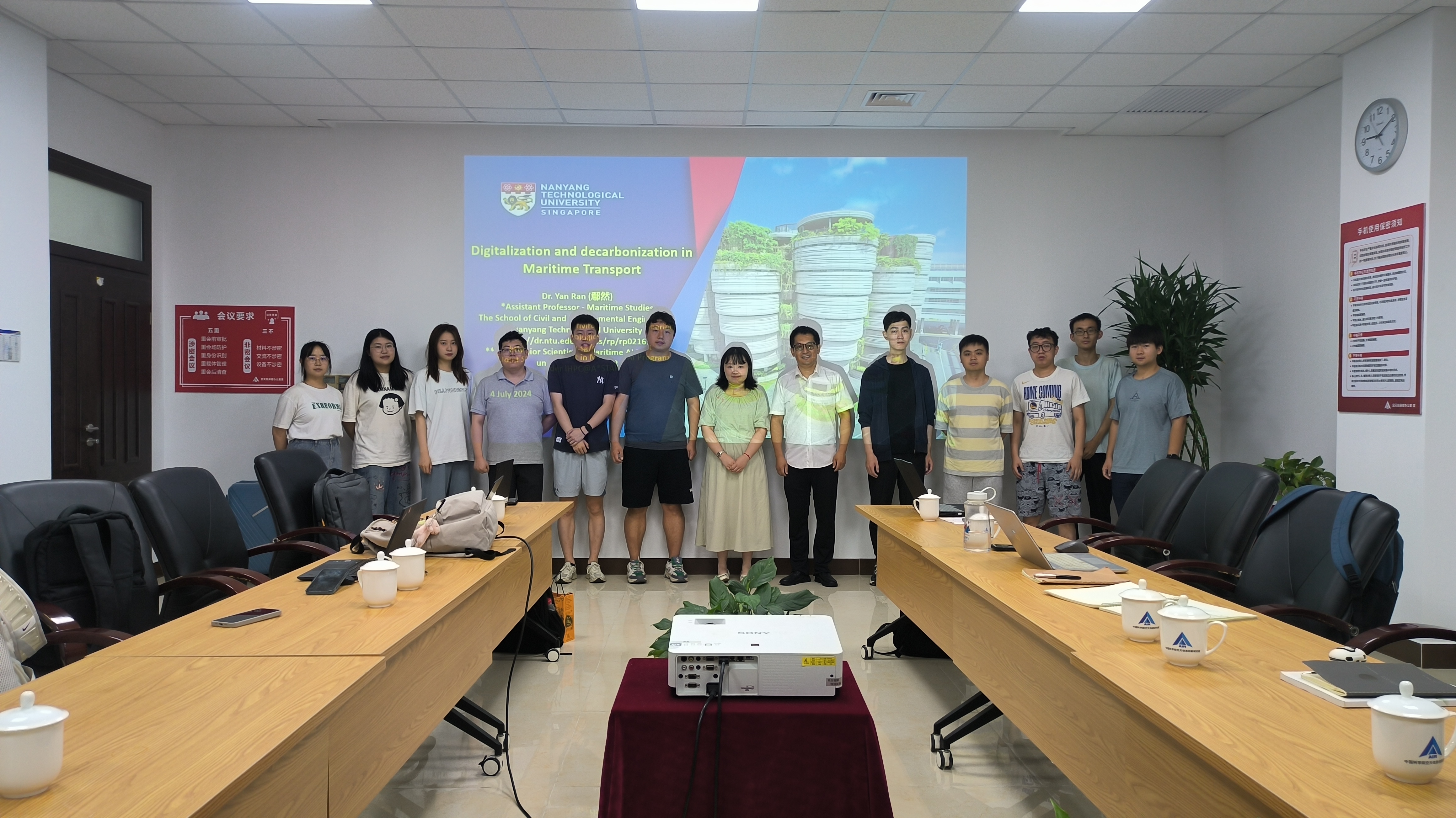Shaohua Wang,Xiao Li,Junyuan Zhou,Chang Zhang
July 4, 2024
Room A102, Olympic Park Area, Aerospace Information Research Institute, Chinese Academy of Sciences
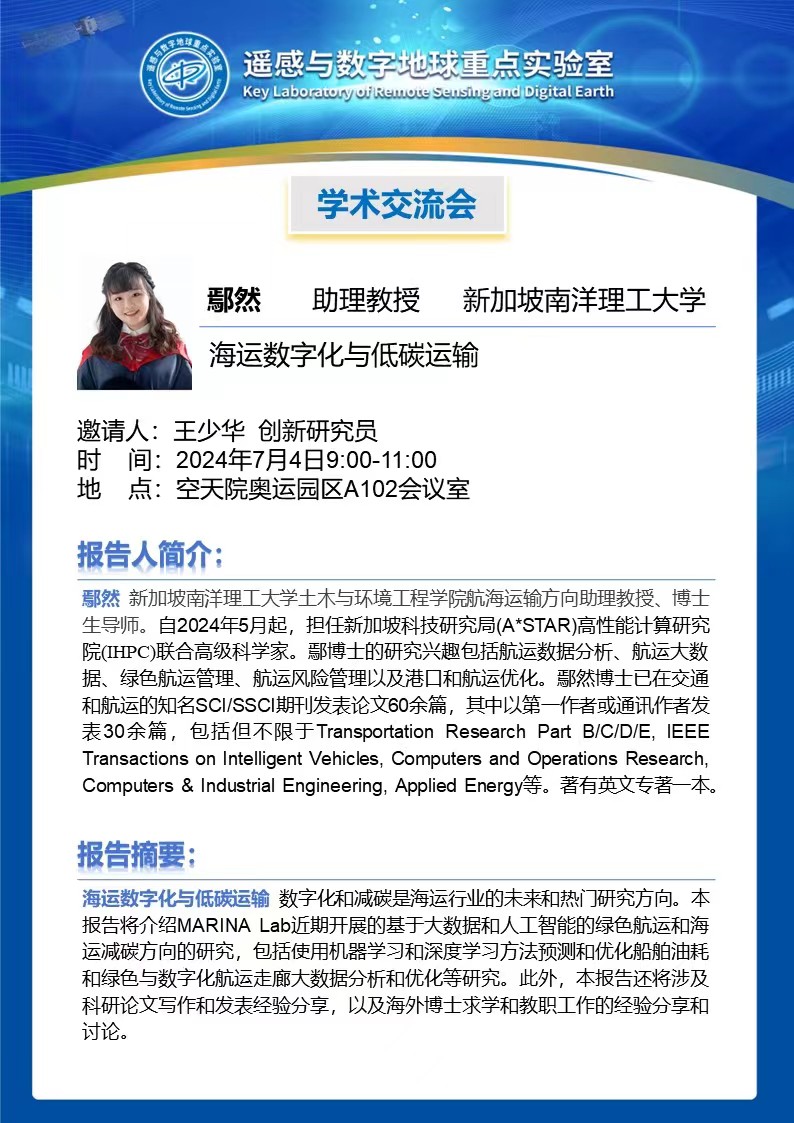
On this intellectual summer afternoon, the highly esteemed assistant professor Yan Ran from Nanyang technological university, Singapore, graced the A102 conference room at the olympic park campus of the aerospace information research institute, sharing with us a captivating academic feast titled "Maritime Digitization and Low-Carbon Transportation: Current Status and Future Prospects." The event, meticulously organized and hosted by innovative researcher Wang Shaohua, drew a crowd of inquisitive students and faculty members eager to learn about the future of the maritime industry.
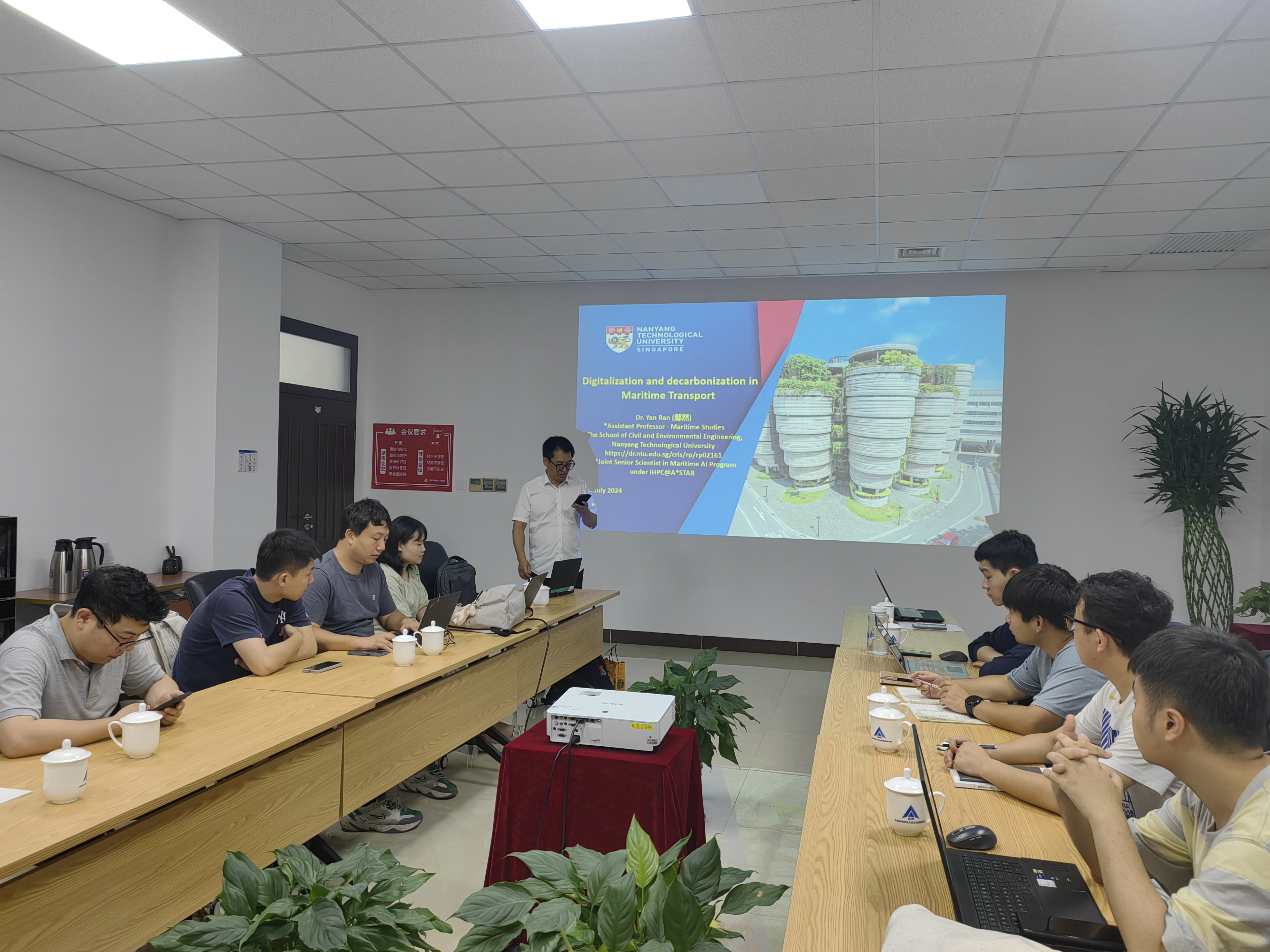
Fig 1:Mr.Wang Shaohua introduced Ms.Yan Ran
With her gentle demeanor and concise yet profound explanations, assistant professor Yan Ran instantly captured the attention of the entire audience. She began by painting a vivid picture of the intricate challenges facing the maritime industry today, including mounting environmental pressures, escalating costs, and uncertainties within the supply chain. Subsequently, she elaborated on how digitization and decarbonization have emerged as crucial drivers of industry transformation and upgrading. By sharing the latest research achievements of MARINALab in green shipping and maritime decarbonization, assistant professor Yan Ran imparted a profound understanding of the pivotal role technology plays in leading industry change.
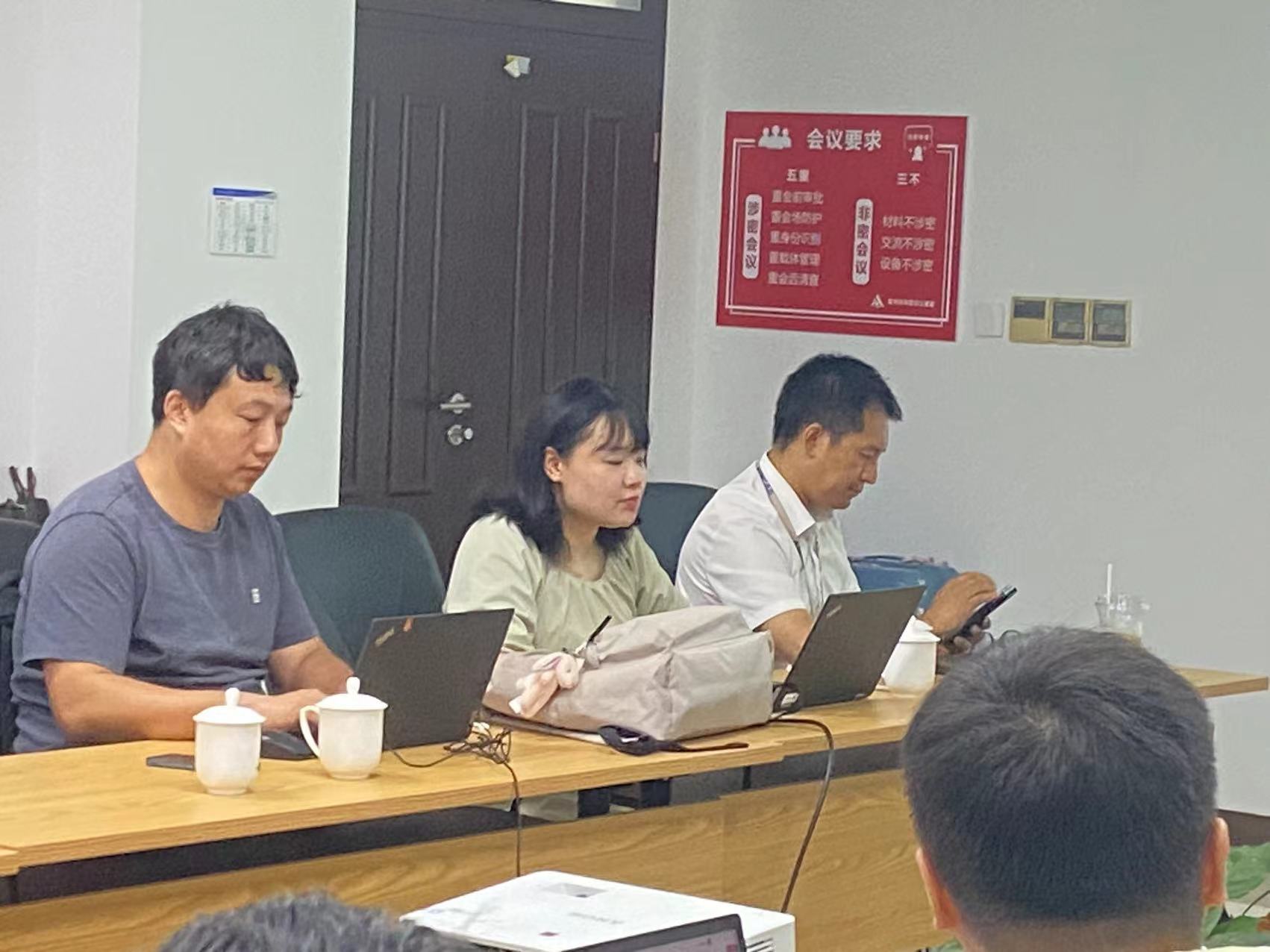
Fig 2: (left) Mr.Mei Qiang (middle) Ms.Yan Ran (right) Mr.Wang Shaohua
Throughout her presentation, assistant professor Yan Ran not only introduced the innovative applications of her team in cutting-edge technologies such as big data analysis and artificial intelligence algorithms but also delved into how these technologies contribute to optimizing shipping routes, reducing fuel consumption, and minimizing emissions. Her discourse, brimming with enthusiasm for technology and visions for the future, deeply moved everyone present.
Associate Professor Tao ran also showed the research results of Tao ran's team in transportation,tourism and population migration based on specific examples.These results demonstrate the great potential and application value of geographic flow big data in solving practical problems,and provide participants with valuable experience and inspiration.
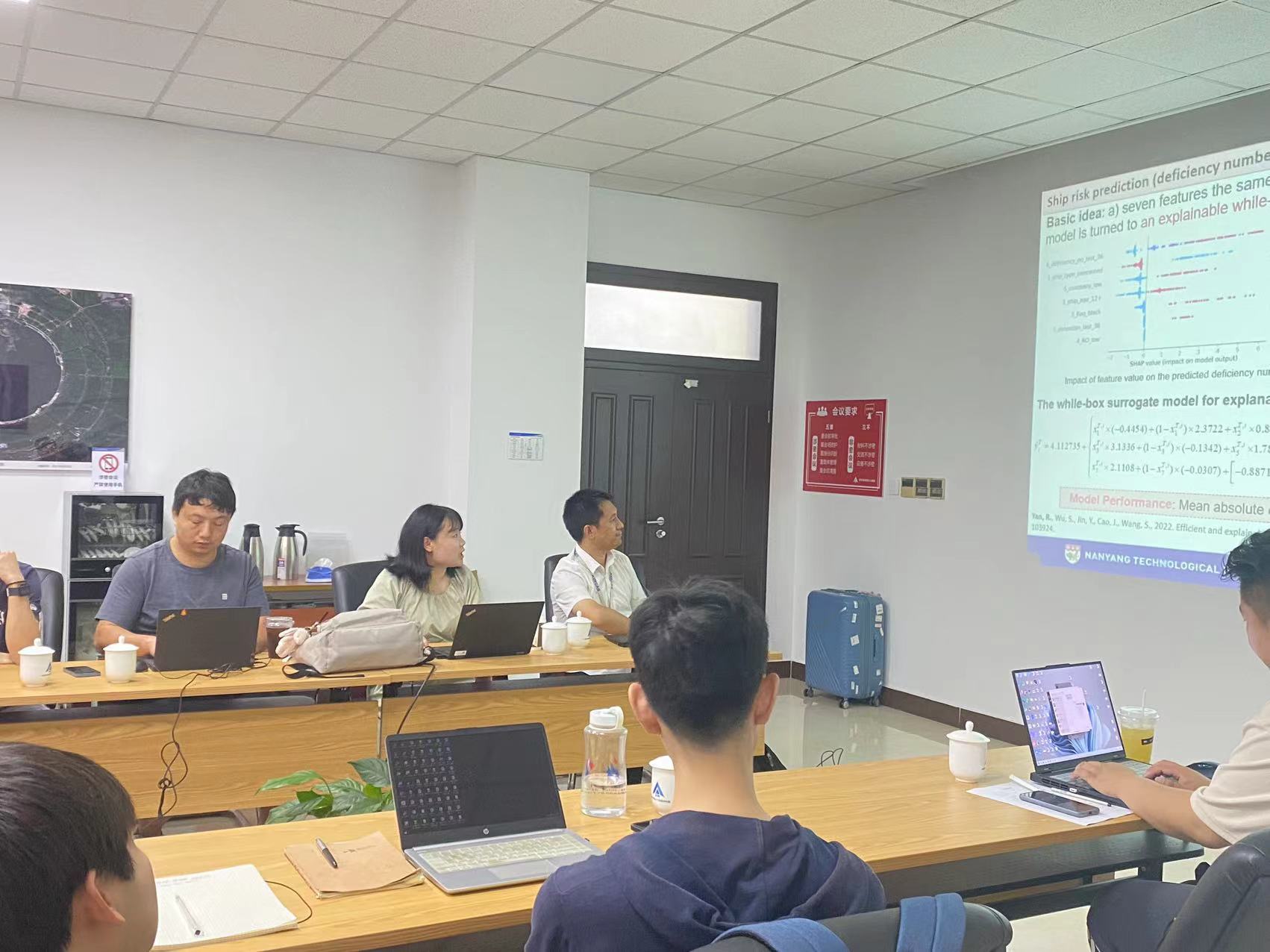
Fig 3:In teacher Yan Ran's report
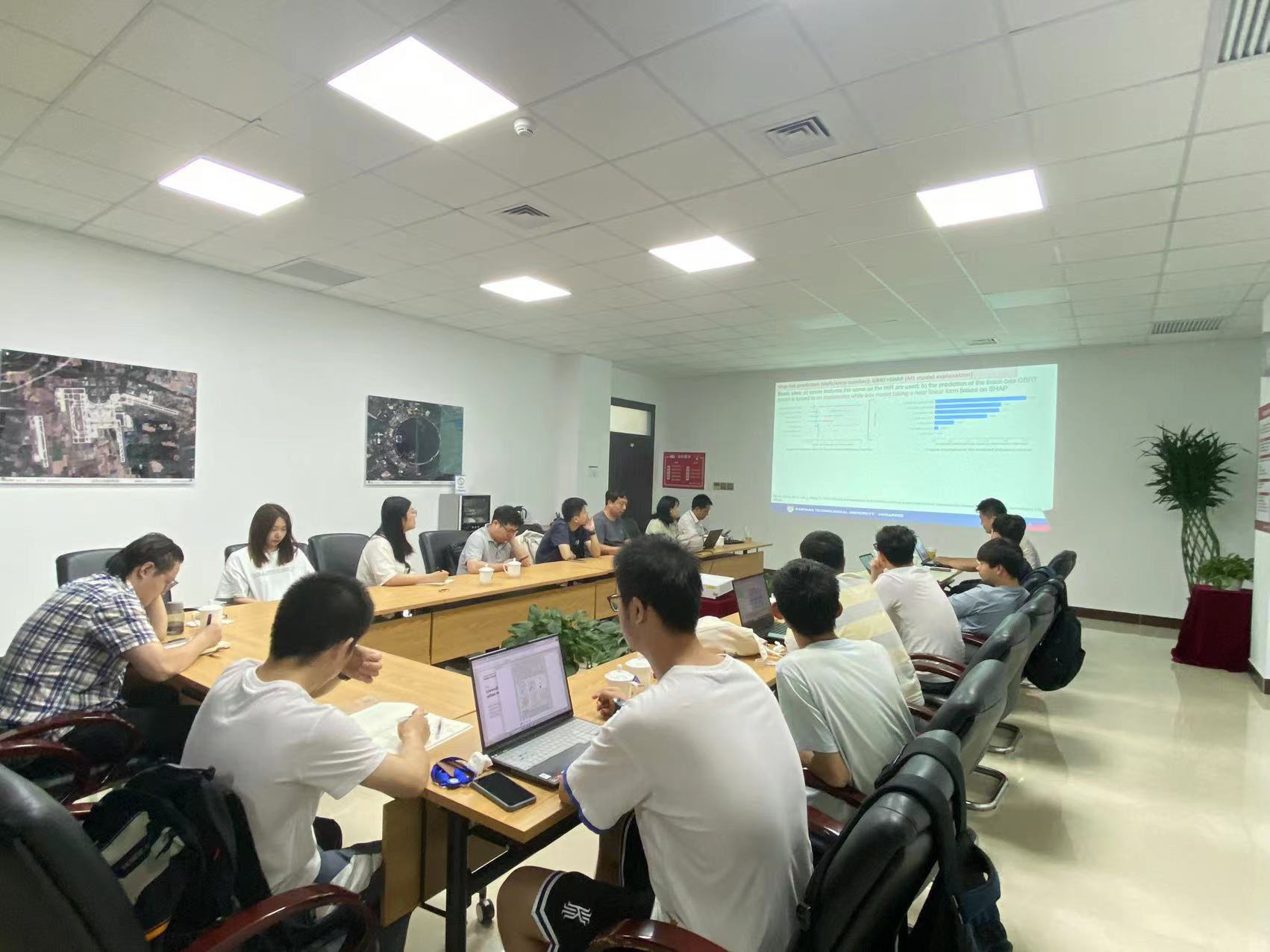
Fig 4:In teacher Yan Ran's report
As the report drew to a close, the scene shifted to an enthusiastic Q&A session. Questions from students poured in, spanning various aspects, including research methodology exploration, data processing challenges, tips for writing academic papers, and potential future research directions. Assistant Professor Yan Ran, with her customary patience and meticulousness, addressed each query with care. She encouraged students to question boldly, innovate fearlessly, and emphasized the importance of hands-on experience and accumulating knowledge.
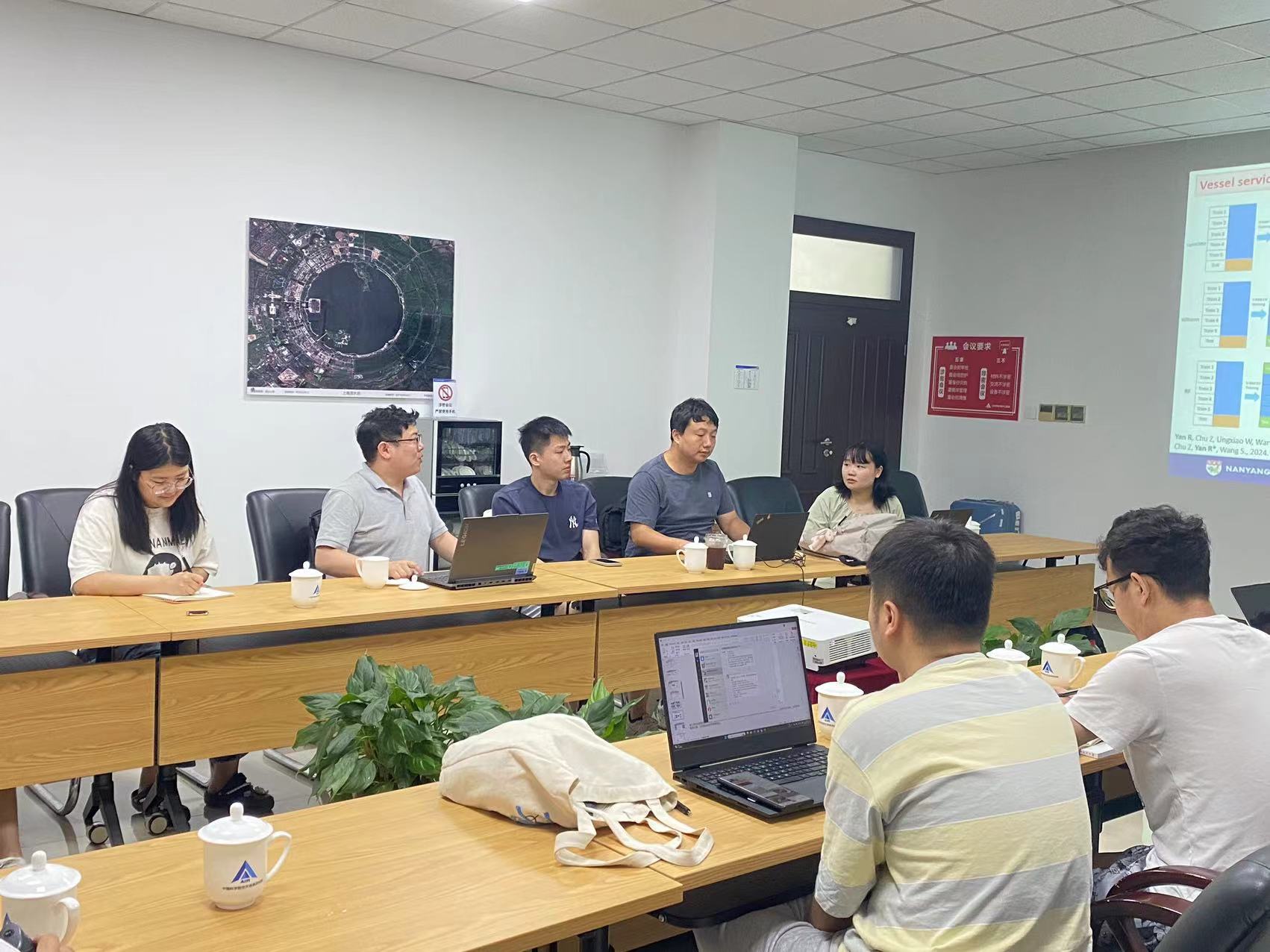
Fig 5:Questions and answers from teachers and students
Furthermore, assistant professor Yan Ran offered invaluable advice on transforming the outcomes of academic exchanges into news articles for academic reports. She stressed the significance of timeliness, accuracy, and readability in newswriting and imparted practical tips for crafting compelling pieces. These insights greatly benefited the students, providing them with invaluable guidance for their future academic endeavors.
This academic exchange was not merely a feast of knowledge but also a spiritual rejuvenation. It showcased the vast potential of maritime digitization and low-carbon transportation, igniting within us a renewed confidence and anticipation for the future. We are convinced that under the guidance of outstanding scholars like assistant professor Yan Ran, the maritime industry is poised to usher in an even brighter tomorrow.

Fig 6:Group photo of the participants
